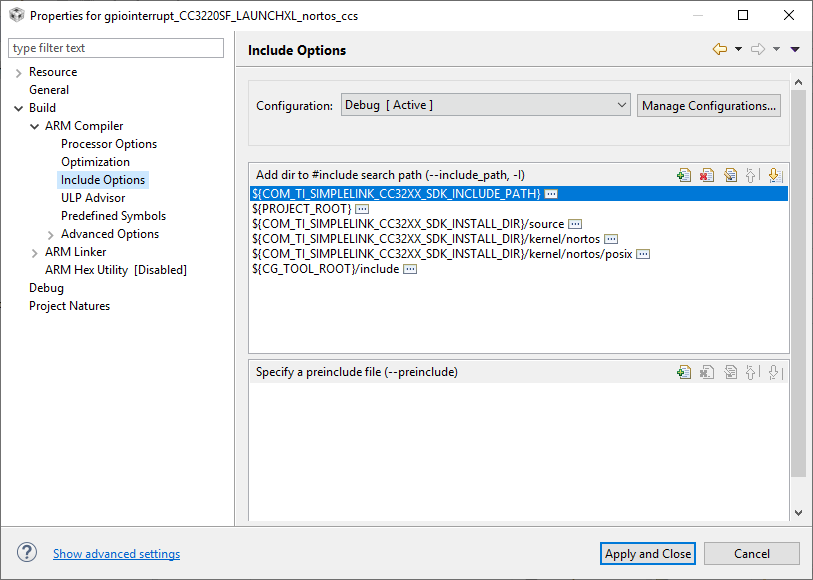Other Parts Discussed in Thread: CC3220SF
Tool/software: Code Composer Studio
I am new to the environment of CCS. I have just started to work with CC3220SF Launchpad. I am trying to toggle the LED's to get used to GPIO pins. I have enabled the Pins in PINMUX TI tool. The code i am trying to run is as follows,
#include "hw_types.h"
#include "hw_ints.h"
#include "hw_memmap.h"
#include "hw_common_reg.h"
#include "interrupt.h"
#include "hw_apps_rcm.h"
#include "prcm.h"
#include "rom.h"
#include "rom_map.h"
#include "prcm.h"
#include "gpio.h"
#include "utils.h"
#include "pin_mux_config.h"
void main()
{
PinMuxConfig();
while(1)
{
GPIOPinWrite(GPIOA1_BASE, 0xFF, 0x02);// pin 64 Red LED
UtilsDelay(8000000);
GPIOPinWrite(GPIOA1_BASE, 0xFF, 0x04); // pin 1 yellow LED
UtilsDelay(8000000);
GPIOPinWrite(GPIOA1_BASE, 0xFF, 0x08); // pin 2 green LED
UtilsDelay(8000000);
}
}
But I am getting the following error while compiling even after describing the resource path location,
Description Resource Path Location Type
#1965 cannot open source file "ti/drivers/utils/List.h" .ccsproject /led line 358, external location: C:\TI\simplelink_cc32xx_sdk_3_10_00_04\source\ti\drivers\Power.h C/C++ Problem
I have also attached the screenshots of the error.


